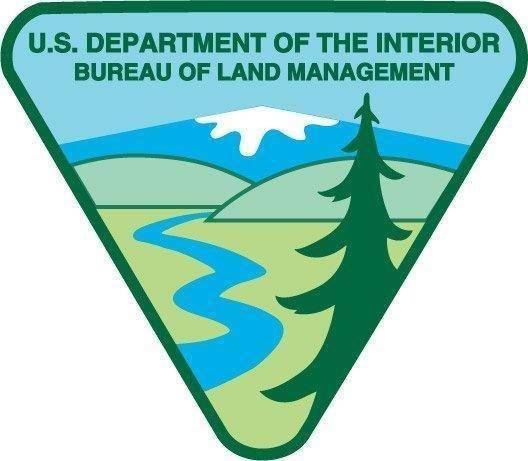Emphasizes the interconnection between people,
the public lands and the economy
Press Release
WASHINGTON – In keeping with the Administration’s goal of securing America’s energy dominance, President Trump has proposed a $1 billion Fiscal Year (FY) 2019 budget for the Bureau of Land Management that will provide resources to promote energy development on public lands while expanding access to recreation and conservation areas.
The President’s proposal provides resources to support the Administration’s goals and meets the BLM’s multiple-use and sustained yield mission in other areas. The budget focuses on the BLM’s field operations, including being a “Good Neighbor” to the communities that are home to BLM lands and within common regional boundaries with other Interior bureaus.
Conserving Our Land and Water Resources
BLM lands are working lands that allow traditional land uses such as grazing. The BLM currently administers approximately 18,000 grazing allotments on about 155 million acres of public lands. To support these efforts, the budget proposes $82.1 million for the Range Management program. In 2019, the Bureau will continue to streamline the grazing permit process and look for opportunities to incorporate flexible terms and conditions into permit renewals.
Generating Revenue and Utilizing Our Natural Resources
The budget requests $185 million to provide access to energy and minerals development, including resources to establish a competitive leasing program on the Coastal Plain (1002 Area) of the Alaska North Slope, as required by the recently enacted Tax Cuts and Jobs Act. The proposed funding for energy and minerals will add capacity and improve the federal coal leasing and permitting program.
Expanding Outdoor Recreation
Outdoor recreation is vital to the Nation’s heritage and economy – a fact that is recognized by the Bureau’s 2019 budget request. Recreation activities on BLM lands, including hunting, fishing, motorized recreation, camping, and more, help support thousands of jobs and help contribute millions of dollars of economic activity. Expanding these opportunities is central to the 2019 proposal for the BLM as it requests $53.2 million for Recreation Resources Management, $11.9 million for Wilderness Management, and $26.3 million for National Monuments and National Conservation Areas. An investment of more than $90 million in these areas continues to support a wide range of recreational opportunities and creates job opportunities in many rural western communities.
Modernizing Our Organization and Infrastructure for the Next 100 years
The BLM owns more than 5,000 structures and buildings, including dams, bridges, electrical and communication systems, trails, and roads. With a request of $24.9 million, the BLM will tackle its highest priority deferred maintenance projects that support critical health or safety and mission essential repair projects in an effort to directly and positively impact the safety of both Interior employees and the public that they serve.
Protecting Our People and Resources
BLM lands lie directly along nearly 200 miles of the international boundary with Mexico in New Mexico, Arizona and California, where the BLM promotes safety, security, and environmental protection of public lands, public land users, and employees. The 2019 budget request includes $24.2 million for the Law Enforcement program to continue resource and public safety efforts along the southwest border, as well as combat marijuana cultivation on public lands and address other needs.
Legislative Proposals
To further support recreation on public lands, the Department is seeking the permanent reauthorization of the Recreation Fee program under the Federal Lands Recreation Enhancement Act, which expires on September 30, 2018. The Act provides nearly $260 million in revenue annually that is used to improve and support recreation facilities on parks and public lands, including BLM-managed lands.
The BLM seeks to lift the burdensome restrictions on how it manages the Wild Horse and Burro program, as part of the Department’s effort to reduce the program’s unsustainable long-term costs and to meet the legal obligations under the Wild Free-Roaming Horse and Burro Act of 1971.
The budget also proposes the permanent reauthorization of the Federal Land Transaction Facilitation Act, which expired in 2011. The Act allows lands identified in recent resource management plans as being available for disposal to be sold with the revenue used to acquire lands with high conservation values and to cover costs associated with conducting sales.

